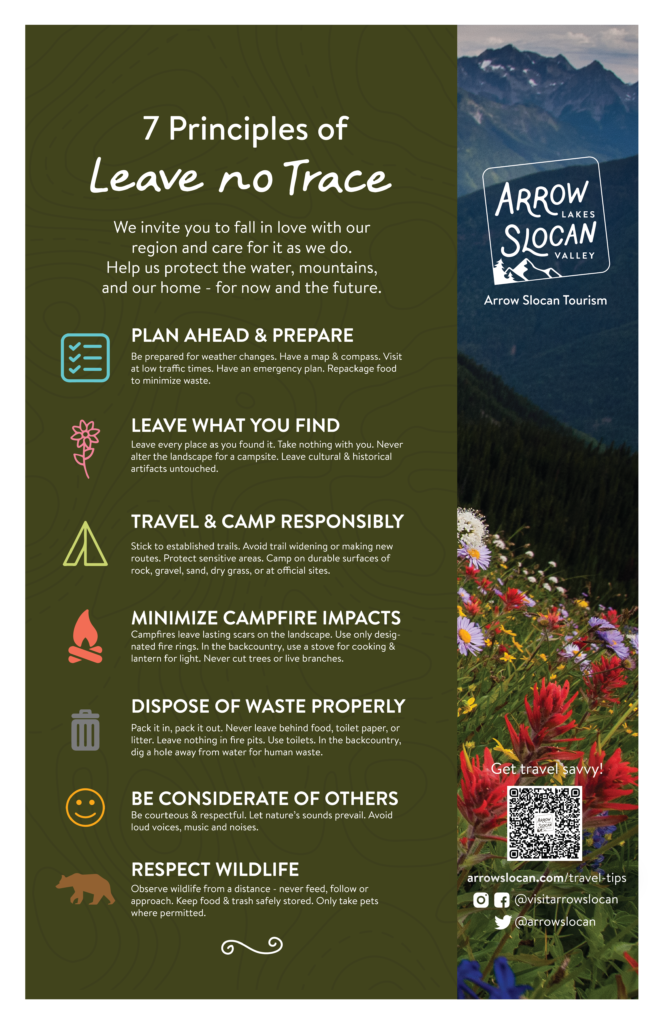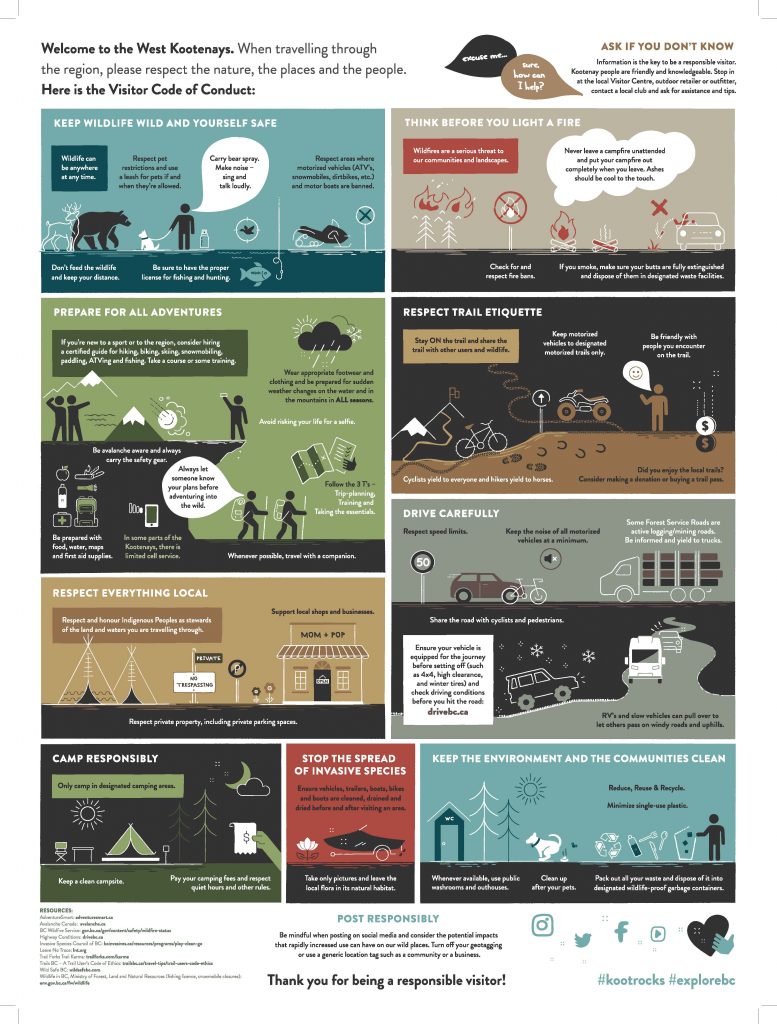Outdoor Ethics
When using provincial parks, recreation sites, hiking, camping or exploring into the backcountry, use these guidelines and outdoor ethics to keep wild spaces beautiful.
Who doesn’t love being outside and experiencing untouched beauty and nature?
Let’s keep it that way – Take nothing but photos, leave nothing but footprints.
1. Plan Ahead and Prepare
- Visit in small groups and come outside peak use periods.
- Repackage food to minimize waste.
- Use a map and compass. Don’t use rock cairns or flagging.
- Prepare for extreme weather, hazards and emergencies.
3. Dispose of Waste Properly
- Pack it in, pack it out. Pack out all trash, leftover food, wrappers and litter.
- Inspect your campsite and rest areas before departure.
- Do not leave garbage in firepits even if it is burnable.
- Use pit toilets wherever available. When not, deposit solid human waste in holes dug 15 to 20 centimeters deep at least 70 meters from water, camps and trails. Cover and disguise the hole when finished.
- Pack out toilet paper and hygiene products.
- To wash yourself or your dishes, carry water 70 meters away from streams or lakes and use small amounts of biodegradable soap. Scatter dishwater after straining it for food remnants.
5. Leave What You Find
- Preserve the past: do not touch cultural or historic structures and artifacts.
- Leave rocks, plants and other natural objects as you find them.
- Avoid introducing or transporting non-native species.
- Do not build structures, furniture, or dig trenches.
7. Minimize Campfire Impacts
- Campfires can cause lasting impacts to the backcountry. Use a lightweight stove for cooking and enjoy a candle lantern for light.
- Do not make a fire outside of a designated fire ring or pit.
- Never make a fire in the alpine or other sensitive areas.
- Where fires are permitted, use established fire rings, fire pans, or mound fires.
- Burn all wood and coals to ash, put out campfires completely.
- Keep fires small. Only use sticks from the ground that can be broken by hand. Never cut trees or live branches.
2. Travel and Camp on Durable Surfaces
- Stick to established trails and campsites, or rock, gravel, dry grass and snow surfaces.
- Protect riparian areas. Camp at least 70 meters from lakes and streams.
- Do not alter the ground to make a campsite.
- In popular areas:
- Concentrate use on existing trails and campsites.
- Avoid trail spread and braiding by walk single file in the middle of the trail, even when wet or muddy.
- Keep campsites small. Focus activity in areas where vegetation is absent.
- In pristine areas:
- Disperse use to prevent the creation of campsites and trails.
- Avoid places where impacts are beginning.
4. Be Considerate of Others
- Respect other visitors and protect the quality of their experience.
- Be courteous. Yield to other users on the trail.
- Take breaks and camp away from trails and other visitors.
- Let nature’s sounds prevail. Avoid loud voices, music and noises.
6. Respect Wildlife
- Observe wildlife from a distance. Do not follow or approach them.
- Never feed wildlife. It damages their health, alters natural behaviors, and exposes them to predators and other dangers.
- Protect wildlife and your food by storing rations and trash securely.
- Control pets at all times or leave them at home.
- Do not take pets in to parks where they are not permitted.
- Avoid wildlife during sensitive times: mating, nesting, raising young, or winter.
Want to know more?

